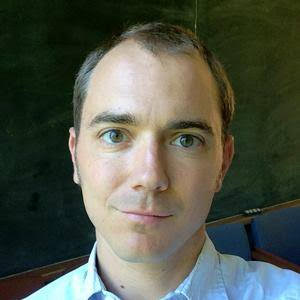For these Sunday posts in January, I want to listen to how people, especially those with immigration or refugee experiences, find sustenance and purpose in difficult times.
When the war began in Ukraine, Olesia and Marko Markovic considered their options, their obligations to family and country, and the need for safety for their eight-year-old son, and made the decision to move from Kyiv to Vodnjan, a quiet village in the Croatian countryside, where Marko has family roots.
Olesia and I studied journalism together years ago, and I watched from afar as she posted images to Instagram from their new life – her son at a wintry playground, their cat lounging on a sunny windowsill, a breakfast table strewn with LEGO jets. I was struck by the way social media flattens so much experience, delivering information without context. I reached out to ask if she would speak about life during the war, particularly the decision to leave their home in Kyiv.
“You don’t really have much choice when you hear missile blasts outside,” she told me. At first, it felt surreal, “like in a dream and you think “OK, it’s some crazy nightmare, I will wake up and it will be over.’ But it isn’t.“

The first weeks in Croatia were a blur of helping her son adjust to online school, helping her family adjust (her mother and their cats moved with them), fundraising for the Ukrainian army, and gathering donations for pets displaced by the war. On top of that, she’s kept up with her own work as a project manager, a co-producer of the BBC documentary series Putin vs the West, and a mentor through Invisible University for Ukraine, an initiative that helps displaced college students continue their education.
The most difficult sensation, she said, is the feeling of being in two places at once: “My mind was, and still is, in Ukraine – following the news, living that pain, trying to help those I can help. I am physically in one place and mentally in the other.“
In our graduate program at Indiana University, Olesia had a seriousness of purpose that stood out. We overlapped for just one year, but it was clear she was committed to using her professional skills for the good of her country. She spoke of the need for Ukraine’s stories to be told by Ukrainians, a need she continues to serve.
I asked how she seeks a sense of normalcy amid so much change.
She paused. “There are two options. You can put yourself together, do your job, do your thing, and live for some purpose. Or just get depressed in your grief, and your life will turn into a total mess. I prefer to put myself together and move forward.”

She had never cared for hiking before moving to Croatia, but it has become a lifeline for her family, a way to “ventilate the brain” (what a great phrase), and a way to get to know the farmlands and coastlines near their home. She told me about hiking near the border with Slovenia and coming across the remains of a camp from Syrian refugees seeking a safe way into Europe in 2015 or 2016. There were discarded backpacks, children’s blankets, toothpaste tubes, the evidence of so much loss contrasting with the beauty of the forest.
As an interviewer, I hesitate to ask people about hope. Too often it creates an implied request to deliver comfort to readers. An interview subject should be free to express whatever they want, comforting or not. But I wanted to ask Olesia: Is “hope” a helpful concept for you?
“Hope is not enough if it’s not reinforced by actions,” she told me. “You can’t only hope. You have to do something to make it happen.”
I don’t have lessons to draw from her story. I just wanted to step beyond the noise of social media and listen to an old friend doing her best amid extraordinary hardship. I asked one more question: What would you like those around the world to understand about the condition of Ukrainians right now?
“Please don’t yield to information fatigue,” she said. “Don’t write us off the agenda. Help us fight. Help us document the crimes done by the Russians. Help us restore justice. Ukrainian historian and Harvard professor Serhii Plokhii said, ‘Unpunished crime breeds further crime.’
“We can’t let it happen.”
Photos courtesy Olesia Markovic.


9 Responses
Thank you, Olesia and Jonathan, for this amazing ongoing story, so beautifully encapsulated in this quote, the best New Year’s advice ever, especially as embodied by Olessia’s courageous persistence: “Hope is not enough if it’s not reinforced by actions,” she told me. “You can’t only hope. You have to do something to make it happen.”
Thank you for putting a face and voice to a situation. We drift from the horror and forget. We shouldn’t do that. I was amazed and awed at the amount of responsibility she takes for her own hope and future. I’m not sure I’d be so brave and resilient.
Thank you for this.
“There are two options. You can put yourself together, do your job, do your thing, and live for some purpose. Or just get depressed in your grief, and your life will turn into a total mess. I prefer to put myself together and move forward.” Thank you for sharing Olesia’s story and her wisdom, born of pain and loss.
“Unpunished crime breeds further crime”. A note for 2024 in America!
Compassion fatigue is not an option for us.
Thank you for asking the right questions and helping us listen for her answers. Thank you for sharing her stories.